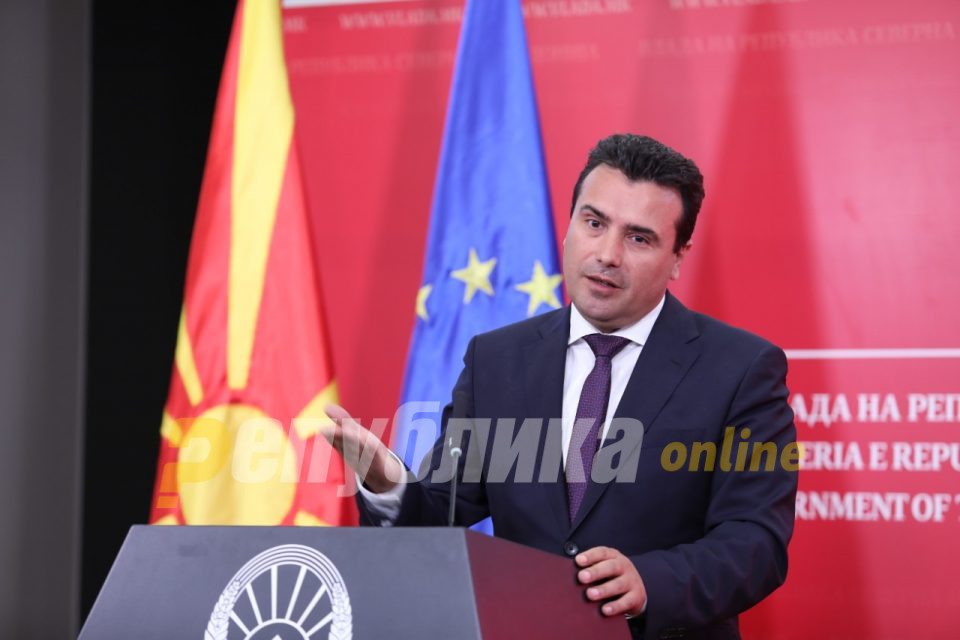Zoran Zaev announced sweeping new regulation that seems aimed at silencing critical media outlets under the guise of fighting “fake news”.
Zaev announced an action plan and the creation of a task force to combat misinformation, and will “analyze and follow attacks”. Zaev claimed that his Government is faced with the “massive spread of misinformation on the social media and in traditional media”, including from other countries and qualified this even as a “cyber threat”. The regulation is in response to his failure to realize over a year, in three conversations lasting a total hour, that Russian pranksters Vovan and Lexus are not actually Ukrainian President Petro Porosenko and NATO Secretary General Jens Stoltenberg. Zaev disclosed sensitive regional information during the talks, but is now seizing the incident to restrict critical outlets.
As our response to these cyber threats, and in line with the principles of openness, transparency and accountability, the Government is working on an action plan to systemically tackle misinformation. Our goal is to enhance national security and the safety of the citizens and to defend and advance democracy, Zaev added.
Zaev already changed his phone number after the Porosenko prank and announced firing assistants and altering communication protocols. What concerned the press more are the “proactive measures” he announced toward the media. These will include forming a task force led by his “Accountability Minister” Robert Popovski and leftist activist Marjan Zabrcanec who is now Zaev’s media adviser, who will organize a “public interest campaign on the harmful effects of misinformation”. Zaev announced that the Government may select journalists who are allowed to attend his press conferences and publish official positions and talking points for the media. The press conference coincided with the police questioning of a journalist who revealed allegations of corruption in Zaev’s Government.
During the very press conference, Zaev was asked about one of his most famous “fake news” – his 2018 claim that Macedonia was given an unconditional date to open EU accession talks in June 2019, which he relied on heavily in his failed September 2018 referendum campaign. Zaev also insisted that he never nominated prosecutor Vilma Ruskoska as the next Special Prosecutor, after the disgraceful exit of Katica Janeva, despite his clear statement in this regard and the fact that Ruskoska – wait for it – publicly thanked Zaev for the nomination, saying it’s an honor. Zaev also claimed ignorance of an article in the law on state prosecutors he proposed which may lead to the creation of a specialized court department.
Zaev also publicly refused to meet journalist Branko Geroski who has revealed details about the Katica Janeva scandal. Geroski threatened to publish the names of a number of officials of the Zaev Government and his SDSM party, unless he seriously clears house by August, to which Zaev taunted journalists to publish the full names and expose themselves to legal action.
Zaev’s Government cites the slight improvement of Macedonia’s standing in reports by several international organizations as evidence that freedom of expression is improving in Macedonia. Since Zaev’s assumption to the office in 2017, three daily newspapers were closed as their owner, Jordan Orce Kamcev, apparently faced blackmail attempts by Katica Janeva. These included the best read political broadsheet Dnevnik, which was critical of Zaev. Republika’s weekly magazine stopped publication. The Nova television closed after its owner was charged, again by Janeva, and other media outlets faced with pressures and politically driven criminal charges noticeably altered their editorial policies. Even private citizens are being called for police questioning with increasing frequency, based “hate speech” reports made by organizations that support Zaev’s policies.





Comments are closed for this post.